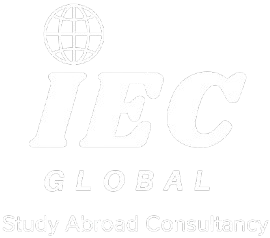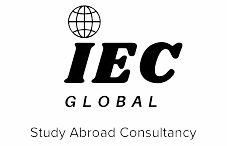
Why Study Abroad?
Studying abroad is more than an academic milestone—it’s a life-changing experience that equips students with skills, perspectives, and memories that last a lifetime. It’s an opportunity to step out of comfort zones, immerse in new cultures, and gain hands-on learning that goes beyond traditional education. Here’s why studying abroad should be at the top of your list.
Expand Your Horizons
Living and studying in a foreign country introduces you to a world of new possibilities. It’s a chance to explore different cultures, languages, and traditions firsthand. These experiences foster adaptability and open-mindedness, qualities that are invaluable in both personal and professional settings.
Beyond cultural immersion, exposure to global perspectives can help students think critically and approach problems with innovative solutions. Whether it’s learning how education systems differ or how people from various backgrounds collaborate, studying abroad challenges preconceived notions and encourages growth.
Enhance Career Prospects
In today’s interconnected world, employers value candidates with international exposure. Studying abroad demonstrates independence, cultural awareness, and the ability to navigate unfamiliar environments. These qualities make a résumé stand out in competitive job markets.
Many students also have the chance to intern or work part-time while abroad, gaining practical experience in global industries. Networking with peers, professors, and professionals from around the world can open doors to exciting career opportunities in the future.
Learn Beyond Textbooks
While classrooms provide essential theoretical knowledge, studying abroad offers a hands-on approach to learning. History, for instance, comes alive when visiting landmarks or museums that were previously confined to textbook pages. Business students can gain insights into international markets by observing them firsthand, and language learners have the unique opportunity to practice their skills with native speakers.
This kind of experiential learning goes far beyond what can be achieved in a traditional academic setting. It’s an education that’s not just remembered but lived.
Develop Personal Growth
Moving to a new country can be daunting, but it’s also immensely rewarding. The challenges of navigating a new environment—managing daily tasks, communicating in a different language, or making new friends—build resilience and confidence.
Students often return home with a stronger sense of independence and the ability to adapt to any situation. This personal growth extends beyond academics and shapes individuals into more mature, self-reliant global citizens.
Experience Cultural Immersion
One of the most enriching aspects of studying abroad is the chance to live as a local. This includes enjoying the local cuisine, celebrating festivals, and understanding societal norms and values. Cultural immersion helps students appreciate diversity and fosters respect for different ways of life.
Engaging with people from various backgrounds also leads to lifelong friendships and an expanded worldview, making the journey all the more fulfilling.
Overcome Challenges and Build Resilience
Adjusting to life in a foreign country comes with its share of challenges, such as homesickness, language barriers, or cultural differences. However, these obstacles teach problem-solving, patience, and perseverance.
Learning to navigate these hurdles is part of what makes studying abroad so rewarding. Students not only gain confidence but also prove to themselves that they can thrive in unfamiliar circumstances.
Affordable Options Exist
While finances can be a concern, there are numerous scholarships, grants, and exchange programs available to make studying abroad more accessible. Many countries offer work permits for international students, allowing them to earn while they learn.
Researching affordable destinations and leveraging financial aid options can help make the dream of studying abroad a reality.
Create Lifelong Memories
Finally, studying abroad creates unforgettable memories. Whether it’s exploring iconic landmarks, trying unique cuisines, or forging connections with people from around the world, every moment contributes to a transformative journey.
These experiences shape not only academic and career trajectories but also personal lives, leaving a lasting impact that goes far beyond the duration of the program.
Overcoming Homesickness and Culture Shock
Let’s talk about the not-so-glamorous side. Even the most adventurous spirits get hit with homesickness. I’ve learned that keeping a journal, calling home (but not too often), and building routines—like a weekly coffee at the same spot—help ease the transition. It’s okay to miss home. But you’ll be surprised how small wins, like ordering dinner in a foreign language, stack up into real confidence.
Language barriers? They’re humbling! But language apps, phrasebooks, and local friends soon become your secret weapons. Most people appreciate the effort, and even your funniest mistakes turn into great stories.
The Power of International Friendships
One of my favorite things about studying abroad is the melting pot of friends. Late-night study sessions, group road trips, and misadventures in translation are the kinds of memories you can’t manufacture intentionally. Your circle will reflect the world, making both farewells and reunions lifelong events.
Academics Abroad: Learning Outside the Box
Don’t be surprised if your new classes feel unfamiliar. Academic structures and expectations vary wildly. Embrace group work with students from all walks of life—you’ll pick up strategies that might seem odd but will serve you well, professionally and personally.
Making it Happen: Practical Steps
Turning the dream of studying abroad into reality begins with careful planning and research. Start by narrowing down destinations that excite you, considering factors such as language, academic opportunities, local culture, and even the food scene.
Research early, as university and visa application windows open months in advance. Prepare essential documents like transcripts, recommendation letters, and a polished personal statement.
Finances can be a hurdle, but scholarships and financial aid are often available through university websites and international organizations—thorough research is key to unlocking these opportunities. Clear any required standardized tests, such as IELTS, TOEFL, or GRE, and move on to applying for a student visa and securing accommodation.
As departure approaches, finalize travel arrangements, purchase insurance, and pack essentials. By staying organized, proactive, and resourceful, you can transform your aspirations into a seamless and successful global education journey.
Studying Abroad FAQ
-
How do I find scholarships?
-
University financial aid offices, international student organizations, and embassy websites are goldmines.
-
-
What if I can’t speak the language?
-
Many programs are English-based. Otherwise, consider language intensives before your trip—it’s worth it.
-
-
Is it hard to make friends?
-
It can be awkward at first, but stepping out to join clubs or sharing your struggles makes bonds stronger.
-
-
Is study abroad only for the wealthy?
-
Absolutely not. With diligence, scholarships and exchange programs can level the playing field. Budgeting carefully is just as important as fundraising.
-
Final Thoughts
For anyone debating this adventure, we say jump in. The world is so much bigger and friendlier than you imagine, and the lessons you bring back home will last a lifetime. Feel free to ask me anything else—your adventure is just beginning!


